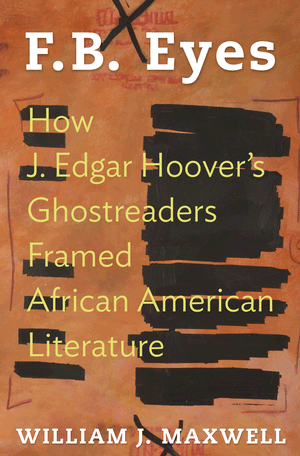The Nation has a review of Naomi Murakawa's book, The First Civil Right: How Liberals Built Prison in America (Oxford University Press).
"This is the fundamental thesis of Murakawa’s book: legal civil rights and the American carceral state are built on the same conceptions of race, the state and their relationship. As liberals believe that racism is first and foremost a question of individual bias, they imagine racism can be overcome by removing the discretion of (potentially racist) individuals within government through a set of well-crafted laws and rules. If obviously discriminatory laws can be struck down, and judges, statesmen or administrators aren’t allowed to give reign to their racism, then the system should achieve racially just outcomes. But even putting aside the fact that a removal of individual discretion is impossible, such a conception of “fairness” applies just as easily to producing sentencing minimums as school desegregation."
 The Civil Rights Movement was especially prominent in book reviews over the last few weeks. Both the The Washington Post (here) and The New York Times reviewed Jason Sokol's All Eyes Are Upon Us: Race and Politics From Boston to Brooklyn (Basic Books).
The Civil Rights Movement was especially prominent in book reviews over the last few weeks. Both the The Washington Post (here) and The New York Times reviewed Jason Sokol's All Eyes Are Upon Us: Race and Politics From Boston to Brooklyn (Basic Books)."If, as many believe, America’s experiment in postracialism is over, then “All Eyes Are Upon Us” is a prescient book that offers a great deal to explain a national self-deception of stunning brevity. According to Jason Sokol, whose anecdotally rich first book, “There Goes My Everything,” tracked white Southerners variously coping in the civil rights era, historians have paid insufficient attention to the Janus-faced responses of white Northerners to the struggles of black Americans."
 Also in Civil Rights Movement history is Darryl Pinckney's Blackballed: The Black Vote and US Democracy (NY Review of Books), reviewed in The Washington Post. Pinckney also has a piece, "In Ferguson," in the latest issue of The New York Review of Books.
Also in Civil Rights Movement history is Darryl Pinckney's Blackballed: The Black Vote and US Democracy (NY Review of Books), reviewed in The Washington Post. Pinckney also has a piece, "In Ferguson," in the latest issue of The New York Review of Books.Salon has published an excerpt from The Professor and the President: Daniel Patrick Moynihan in the Nixon White House by Stephen Hess (Brookings Institute Press).
An excerpt from Mark Dostert's Up in Here: Jailing Kids on Chicago's Other Side (University of Iowa Press) titled, "My juvenile confinement horror: What it's like inside Chicago's infamous jail for kids," is published in Salon.
 The Los Angeles Review of Books has a review of William Maxwell's F.B. Eyes: How J. Edgar Hoover's Ghostreaders Framed African American Literature (Princeton University Press).
The Los Angeles Review of Books has a review of William Maxwell's F.B. Eyes: How J. Edgar Hoover's Ghostreaders Framed African American Literature (Princeton University Press)."With an approach that is both empirical — Maxwell has pored over thousands of pages of government files — and Foucauldian in its inquiry into historical concepts, F.B. Eyes reveals the canon of modern black literature to have been powerfully and dialogically shaped by Hoover’s ghostreaders."Julian Zelizer's new book, The Fierce Urgency of Now: Lyndon Johnson, Congress, and the Battle for the Great Society (Penguin) is discussed by Zelizer and Scott Porch.
Continuing with a focus on race, there were several reviews of books on slavery. For example, New Books in History has a new interview with Randy Sparks discussing his book, Negroes Are Masters: An African Port in the Era of the Slave Trade (Harvard University Press). H-Net has a review of Rebecca Shumway's The Fante and the Transatlantic Slave Trade (University of Rochester Press). And, The Daily Beast has an excerpt about "The Black Man Who Replaced Jefferson Davis in the Senate," from Phillip Dray's book, Capitol Men: The Epic Story of Reconstruction Through the Lives of the First Black Congressmen (Mariner Books, 2010).
 There's more Civil War history in a H-Net review of Kathryn Shively Meier's Nature's Civil War: Common Soldiers and the Environment in 1862 Virginia (University of North Carolina Press).
There's more Civil War history in a H-Net review of Kathryn Shively Meier's Nature's Civil War: Common Soldiers and the Environment in 1862 Virginia (University of North Carolina Press).Defining Democracy: Electoral Reform and the Struggle for Power in New York City is discussed with the book's author, Daniel Prosterman on New Books in History.
In international law, H-Net adds a few reviews of note: the first is a review of the volume edited by Jeffrey Runoff and Mark Pollack, Interdisciplinary Perspectives on International Law and International Relations: The State of the Art (Cambridge University Press). Also on H-Net is a review of Accessible Citizenships: Disability, Nation, and the Cultural Politics of Greater Mexico by Julie Avril Minich (Temple University Press), as is Ryan Irwin's Gordian Knot: Apartheid and the Unmaking of the Liberal World Order (Oxford University Press) (here).
 Salon has yet another excerpt, this time from The Cause of All Nations: An International History of the American Civil War (Basic Books) by Don Doyle.
Salon has yet another excerpt, this time from The Cause of All Nations: An International History of the American Civil War (Basic Books) by Don Doyle.And finally, Sven Beckert's Empire of Cotton: A Global History (Knopf) is reviewed in The Washington Post.
And, if you're interested in that kind of thing, there continue to be several end-of-year booklists that include legal history, including this one from The Washington Post.
